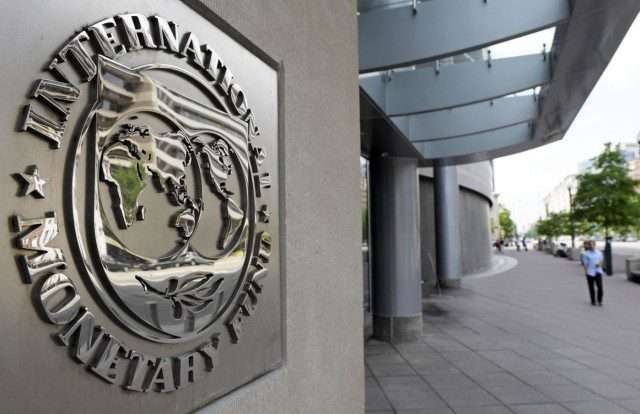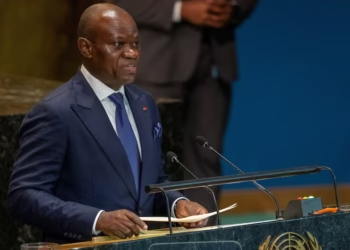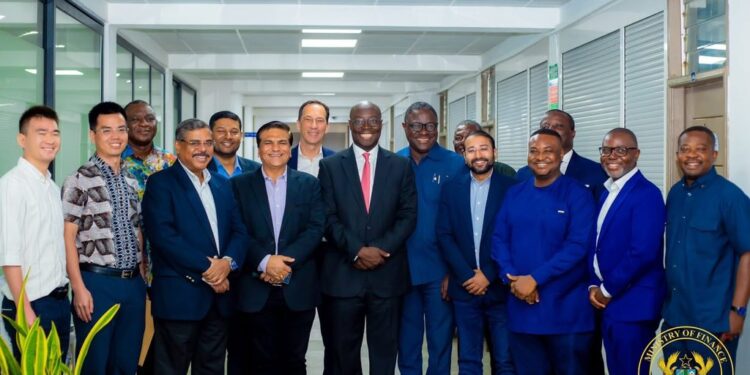The International Monetary Fund (IMF) has approved a two-year Flexible Credit Line (FCL) arrangement for Morocco, providing about $4.5 billion in crisis-prevention support.
This approval is based on Morocco’s “very strong institutional policy frameworks and economic fundamentals” and its track record of implementing “very strong policies” while committing to maintaining them in the future.
The arrangement aims to strengthen Morocco’s external financial buffers and act as a safeguard against economic uncertainties. The Moroccan government has stated that it intends to use the new credit line on a precautionary basis.
Following the IMF Executive Board’s discussion on Morocco, Kenji Okamura, Deputy Managing Director and Acting Chair, acknowledged Morocco’s resilience despite significant economic challenges.
“The Moroccan economy has shown a sustained track record of implementing very strong policies and remarkable resilience to recent shocks, although a succession of droughts has severely curtailed agricultural production and pushed unemployment to historical highs.”
Kenji Okamura

Morocco has faced multiple shocks in recent years, including the COVID-19 pandemic, economic repercussions from Russia’s invasion of Ukraine, a devastating earthquake in 2023, and recurring droughts.
These challenges have impacted economic growth, with successive droughts straining the agricultural sector and driving unemployment to unprecedented levels. However, Morocco’s policy responses have preserved macroeconomic stability through fiscal, monetary, and financial measures.
The IMF acknowledged the country’s economic management, stating that “Morocco’s very strong institutional and policy frameworks have been effective in addressing these shocks, with well-calibrated fiscal, monetary, and financial policies.” The recent issuance of international bonds at favorable terms reflects the confidence of global investors in Morocco’s economic policies.
The government remains committed to structural reforms that promote sustainable economic growth. The goal is to create a more resilient, inclusive, and private-sector-driven economy while strengthening Morocco’s institutional policy frameworks.
Precautionary Measures Against Economic Risks
Despite Morocco’s resilience, the IMF warns of persistent vulnerabilities. The country remains exposed to external risks, including fluctuations in global economic conditions, rising commodity prices, and the potential for further droughts. The new FCL arrangement serves as an additional layer of financial security against these uncertainties.
“The new FCL arrangement will continue to provide Morocco insurance against downside risks. The Moroccan economy remains vulnerable to a worsening of global economic and financial conditions, higher commodity prices, and new occurrence of droughts.”
Kenji Okamura
The IMF noted that Morocco’s government is determined to manage the credit line cautiously, with plans to reduce reliance on external financial support as economic conditions stabilize.
“The authorities are committed to treating the new FCL arrangement as precautionary and gradually reducing access, in the context of their exit strategy, contingent on the evolution of risks.”
Kenji Okamura
Morocco’s economic outlook remains positive, with medium-term growth projected at 3.6%. This growth is expected to be driven by planned infrastructure projects and ongoing structural reforms. The government is also addressing long-term challenges, such as water scarcity, which poses a significant threat to Morocco’s agriculture-dependent economy.
This marks Morocco’s second FCL arrangement, with reduced access compared to the previous credit line as part of a gradual exit strategy. The first FCL, approved in April 2023, amounted to approximately $5 billion. Before that, Morocco benefited from four consecutive Precautionary and Liquidity Line (PLL) arrangements between 2012 and 2020.
While the IMF acknowledges the effectiveness of Morocco’s economic management, the country remains at a critical juncture. The success of ongoing reforms and the ability to navigate external risks will determine Morocco’s financial stability in the coming years. The new credit line provides essential security, but long-term resilience will depend on sustained policy improvements and economic diversification.
READ ALSO: Mahama’s Approval Rating Soars





















